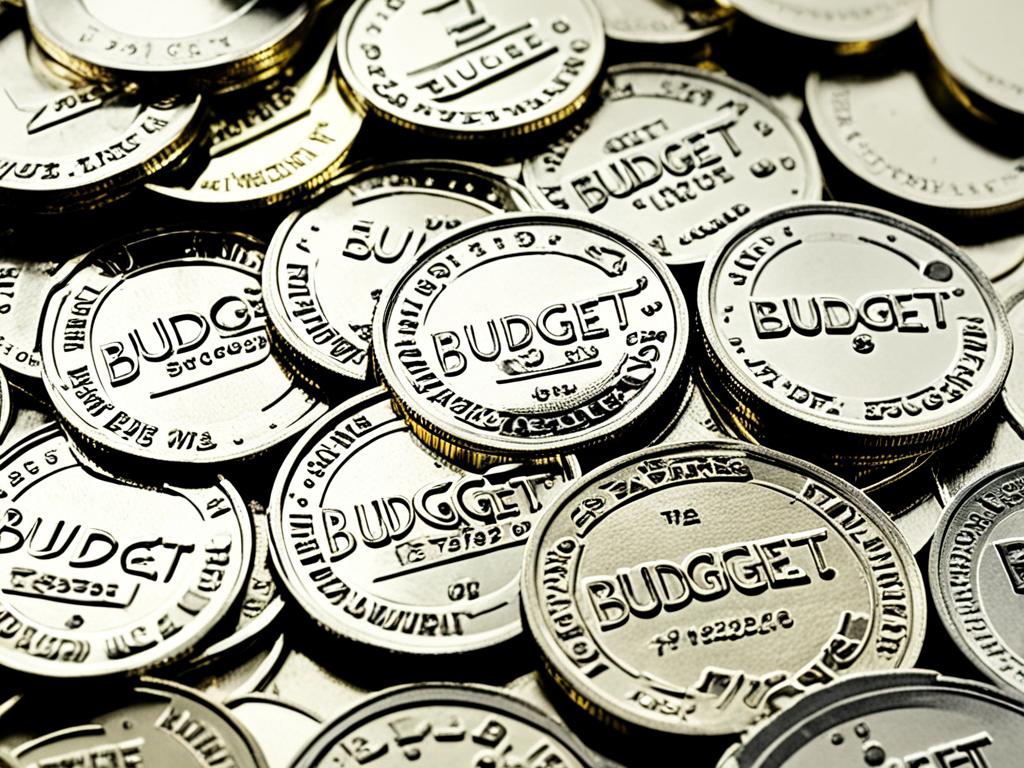Blog2Blog

Mastering Budgeting: Your Path to Financial Success
This entails the need for effective management of finances in a fast-paced and dynamic world. Manageable budget skills have developed into one of the objectives necessary for social stability and economic growth. This article provides a guide on how to control your finances so that you can grow rich on your own trajectory. It will highlight essential strategies, personal finance management tools and behaviors. You require these if you want to meet your financial goals and guarantee a stable future.

Key Takeaways
- Understand the importance of budgeting for financial well-being
- Develop practical strategies to align spending with personal values
- Cultivate financial discipline and control over your money
- Implement effective expense tracking and categorization methods
- Discover proven budgeting techniques for long-term success
Unleashing the Power of Budgeting
Essentially, budgeting happens to fall among the biggest parts of the finance success story. It helps with the regulation of the spending and thus assist in attaining specific set objectives concerning financial aspects. The paper examines some reasons why budgeting is an essential aspect and also its benefits on an individual’s finance status.
Why Budgeting Matters
Finance is an intricate science, hence why studying it in-depth is important. Financial discipline refers to budgeting which aids in ensuring that one’s expenditure corresponds with their values and there is a need for saving even those who do not have steady incomes. All individual parts of such a system and intentions becomes visible when you have set up this kind of structure or plan, including the incomes earned and spent every month as well as all financial flows. This way, one can always remember what he/she spends on each item they own because everything is done in a stricter manner than before.
Benefits of Effective Money Management
Creating a well-thought-out budget opens up numerous benefits. Key advantages of effective money management include:
- Achieving financial goals: A budget directs resources towards your financial targets, whether saving for a down payment, debt repayment, or retirement.
- Reducing financial stress: Knowing your finances helps you avoid the stress of uncontrolled spending.
- Improving saving habits: Budgeting helps you prioritize saving, ensuring a portion of your income is saved for future needs and emergencies.
- Enhancing financial discipline: Adhering to a budget fosters financial discipline, leading to more thoughtful spending decisions.

Getting Started: Assessing Your Financial Landscape
In order to start budget planning, it is necessary to make an exhaustive analysis of your monetary situation. This stage in preparation is crucial for successful budgeting and monitoring of expenses. Collecting as well as organizing your financial records enables one to know well his or her earnings, debts and expenditures. This will give one with necessary knowledge to develop a personal financial plan.
To initiate your financial assessment, collect the following essential information:
- Your total monthly income from all sources, including employment, investments, and any additional earnings.
- A comprehensive list of your existing debts, including credit card balances, loans, and any other financial obligations.
- A detailed breakdown of your monthly expenses, categorized into essential (rent, utilities, groceries) and discretionary (entertainment, dining out, hobbies) spending.
With this information, you can evaluate your economic terrain in depth and identify measures that can be taken to improve it. You might want to examine if there are any chances of budget adjustment as far as income, liabilities and spending are concerned. Preparing a detailed financial plan not only helps one to make sound decisions but also provides the groundwork for an excellent budgeting framework.

Embracing the Budgeting Mindset
To come up with a successful budgeting strategy, you need start by having the correct budgeting mindset. This is important for your financial discipline as well as the way in which you prioritize your expenses. Accordingly, if you want to take full advantage of budgeting, make sure that you align your spending with what matters to you and practice wise financial management skills. Such an approach will ensure that there are no problems faced in the future when it comes to money.
Aligning Spending with Values
Let’s first look at your expenses to make sure they reflect the values that matter most to you. Look for signs of where your money is going and ask yourself if this corresponds with what you want most in life? Are you spending on experiences or are they just material things? Are you supporting the causes you believe in via financial means? Intentionally guiding how we allocate our funds allows us to create budgets that can lead us to our aspirations and thus increase our happiness.
Cultivating Financial Discipline
Recognizing that cash may include not purchasing on impulse and adhering to a predetermined set of expenses as well as reviewing individual finances regularly calls for a merchandise strength approach. Other habits like tracking their expenses saving plans among others enable people to be financially accountable. Another consideration is how long it takes to develop a robust budgeting mentality. Nevertheless, if one can wait patiently for such period it can alter an individual’s attitude towards financial matters changing everything and enabling them achieve their desired financial state.
"The art of living is more like wrestling than dancing." - Marcus Aurelius
The below highlights the need for financial discipline through a quote by Marcus Aurelius, the Roman Emperor and Philosopher. Budgeting is not as simple; it is more complicated than dancing. It involves constant and disciplined attempts to make our actions fit our values and aspirations. Embracing this mental attitude can enable one to use all the possibilities in order to budget wisely for their future sustainability.

Tracking Expenses: The Foundation of Budgeting
The necessity of keeping an eye on how much money is being spent can’t be overemphasized when it comes to a successful financial strategy. This makes it possible to visualize spending patterns and make wise decisions about where to put extra money every month or year. There are various ways to categorize expenses and therefore help people keep their expenses under control; these include both necessary bills as well as optional purchases that might catch your attention from time to time.
Categorizing Expenses Effectively
Start by categorizing your expenses into distinct groups. This method helps identify patterns, spot savings opportunities, and align spending with financial goals. Consider these main categories:
- Fixed Expenses: These are recurring, non-negotiable costs such as rent, mortgage, car payments, and insurance premiums.
- Variable Expenses: These expenses fluctuate from month to month, such as grocery, utility, and entertainment costs.
- Discretionary Expenses: These are optional expenses that you can adjust or eliminate, like dining out, hobbies, and travel.
| Expense Category | Examples | Percentage of Budget |
|---|---|---|
| Fixed Expenses | Rent, Mortgage, Car Payments, Insurance | 40-50% |
| Variable Expenses | Groceries, Utilities, Fuel | 30-40% |
| Discretionary Expenses | Dining Out, Entertainment, Hobbies | 20-30% |
Budgeting Strategies for Success
Deep management of your finances is crucial in achieving stable income and reaching your goals. Luckily, there are different methods for budgeting and managing money. The techniques can assist you to have the best budget optimization and indeed manage your financial future. The 50/30/20 rule is one such method. It proposes that one should use their income in the following manner: 50% for necessary expenses, 30% for non-essential expenditures, and 20% for savings as well as paying off debts. This method is simple but effective: thus enabling you to maintain an even balanced budget. Another possible strategy comprises of the envelope system. In this case, people put cash into various envelopes with various labels; for instance groceries or entertainment or transport among others. Visually seeing how much has been spent makes it easier to monitor expenditure levels such that there are no overspending activities within certain areas.
Zero-based budgeting is another technique that involves allocating every dollar of your income to a specific expense or savings category, leaving no unallocated funds. This method encourages a detailed understanding of your spending and can be highly effective in aligning your finances with your priorities.
Automated savings and debt payments can also be a game-changer. They ensure that your savings and debt obligations are consistently met, even when life gets busy.
When it comes to budgeting techniques and money management strategies, the key is to find an approach that fits your personal financial situation and lifestyle. By experimenting and adapting your budget optimization strategies, you can unlock the power of effective budgeting. This can pave the way to a more secure financial future.
"A budget is telling your money where to go instead of wondering where it went." - Dave Ramsey
Saving Strategies: Securing Your Financial Future
Saving is the cornerstone of a robust financial strategy. By adopting strategic saving methods, you can protect your future and secure long-term financial stability. This section delves into the essential steps for constructing an emergency fund and investing for growth.
Building an Emergency Fund
An emergency fund acts as your financial safeguard, offering a buffer against unforeseen costs. Aim to save three to six months' expenses in your emergency fund. Begin with a modest amount and incrementally increase your savings. Automating your savings can simplify the process.
- Allocate a part of your income monthly to build your emergency fund.
- Keep your emergency savings in a high-yield savings account for quick access.
- Adjust your emergency fund needs as your life situation evolves.
Investing for Long-Term Growth
Investing, alongside an emergency fund, can propel you towards long-term financial objectives, like retirement or significant purchases. Spread your investments across various asset classes to balance risk and enhance potential gains. Periodically assess and refine your investment strategy as circumstances change.
- Explore diverse investment avenues, including stocks, bonds, mutual funds, and ETFs.
- Curate a portfolio that matches your risk comfort and investment horizon.
- Consistently add to your investment accounts, leveraging compound growth over time.
By focusing on saving strategies and establishing a strong financial base, you can ensure your financial security and set the stage for a prosperous future. Integrating an emergency fund with strategic investment planning is pivotal to achieving genuine financial independence.
"The secret to getting ahead is getting started." - Mark Twain
Overcoming Budgeting Challenges
Making and adhering to a budget is an essential aspect of achieving financial stability, but it often has its challenges. The unpredictability of life may sometimes bring out expenses that were not foreseen or changing situations which are going to make it difficult even for the most ideal planning. Nevertheless, if you have persistence attitude and make use of good strategies you can deal with such problems in a way that does not harm your finances.
In conclusion, flexibility as well as adaptability are crucial in budgeting. You should always adjust your budget depending on how the financial landscape around you changes. The ability to adjust your budget is important for things such as a job change, unexpected medical expenses or any other unforeseeable cost. Acknowledge that your budget will indeed keep changing as per the changes which take place in your life.
Making progress can be extremely hard while budgeting. There might be discouragement caused by slow progress that might make one lose focus due to financial pressure. In order to remain determined, concentrate on long-term financial achievements rather than recent instances; celebrate success no matter how small it is; seek emotional support from family members and friends when necessary. Each step made towards better money management is move forward for more financial security in the future.